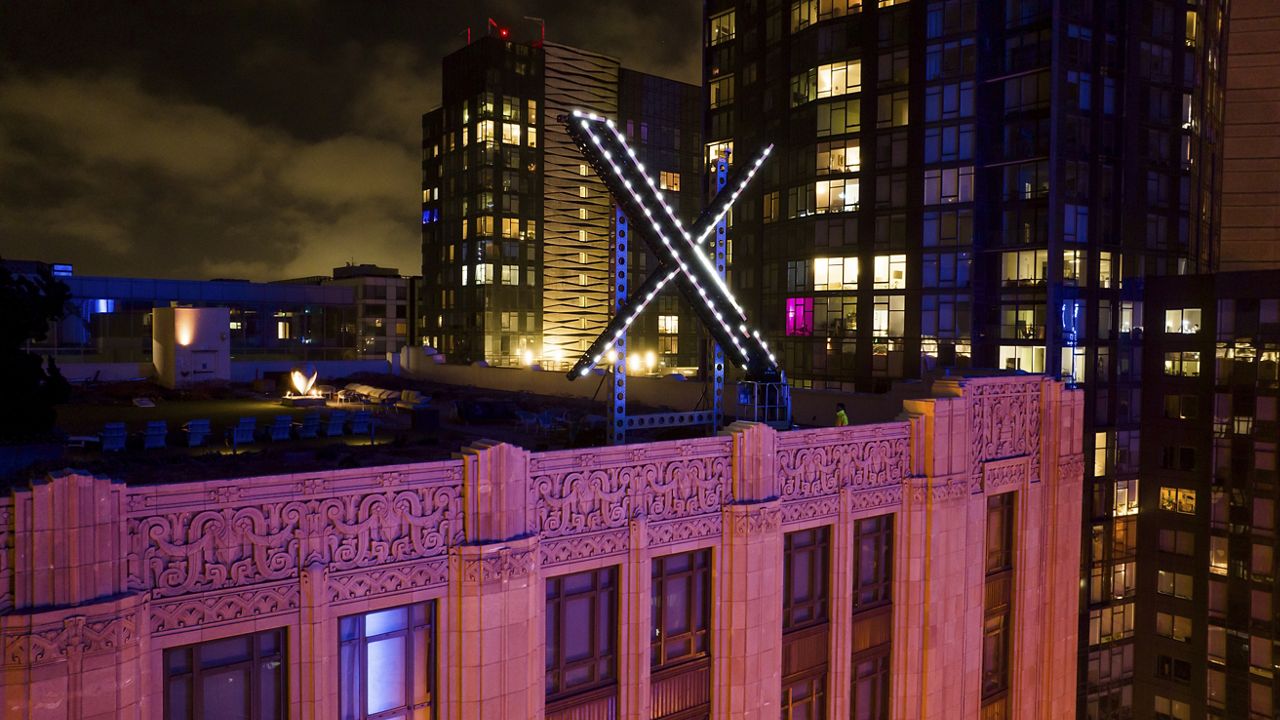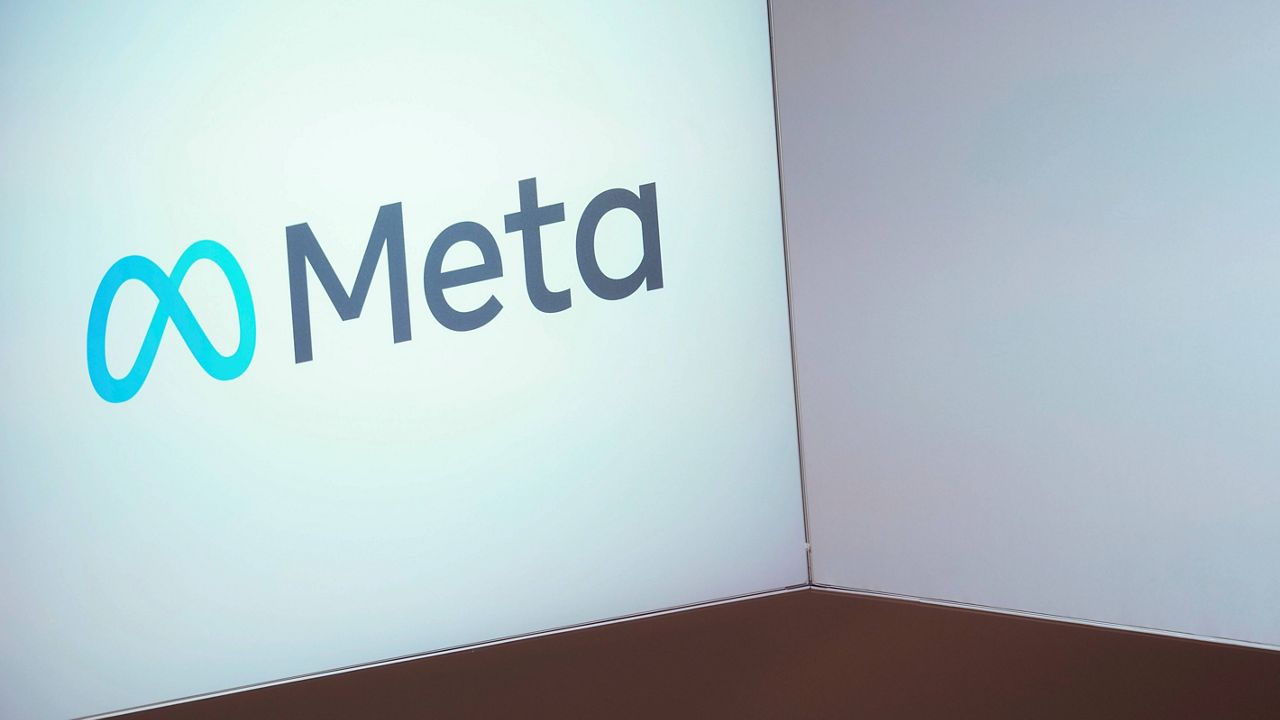X Corp., the parent company of the X social media platform once known as Twitter, on Monday sued the Center for Countering Digital Hate alleging the nonprofit group that researches online hate speech is “actively working to assert false and misleading claims encouraging advertisers to pause investment on the platform.”
What You Need To Know
- The parent company of the X social media platform once known as Twitter on Monday sued the Center for Countering Digital Hate alleging it is “actively working to assert false and misleading claims encouraging advertisers to pause investment on the platform"
- The $10 million lawsuit was filed in federal court in the Northern District of California
- Imran Ahmed, the Center for Countering Digital Hate’s CEO, accused X owner Elon Musk of trying to “‘shoot the messenger’ who highlights the toxic content on his platform rather than deal with the toxic environment he’s created"
- The CCDH has published a series of studies that found hate speech has increased since Elon Musk purchased Twitter, which he rebranded X last week, in October 2022
“Through the CCDH's scare campaign and its ongoing pressure on brands to prevent the public’s access to free expression, the CCDH is actively working to prevent public dialogue,” X said in a blog post.
The $10 million lawsuit was filed in federal court in the Northern District of California.
Imran Ahmed, the Center for Countering Digital Hate’s CEO, accused X owner Elon Musk of trying to “‘shoot the messenger’ who highlights the toxic content on his platform rather than deal with the toxic environment he’s created.”
“Elon Musk’s latest legal threat is straight out of the authoritarian playbook – he is now showing he will stop at nothing to silence anyone who criticizes him for his own decisions and actions,” Ahmed said in a statement.
The CCDH has published a series of studies that found hate speech has increased since Elon Musk purchased Twitter, which he rebranded X last week, in October 2022.
The group’s research has found, for example, that the number of tweets containing slurs soared by about 200% in the early weeks after Musk took over Twitter, that anti-LGBTQ+ posts about “grooming” were up 119% in the first five months under Musk and that the platform was poised to generate $19 million in ad revenue from 10 banned accounts restored by Musk.
In a July 20 letter to the CCDH, Alex Spiro, a lawyer representing X Corp., accused the nonprofit group of making “troubling and baseless claims that appear calculated to harm Twitter generally, and its digital advertising business specifically.”
Spiro attacked CCDH’s research methodology, including in a June report that found Twitter failed to take action on 99 of 100 hateful tweets by Twitter Blue users that the CCDH flagged to the company. Twitter Blue is a subscription that provides more features to users.
The messages, the CCDH said, were racist, homophobic, neo-Nazi or antisemitic, or they included conspiracy content. All the posts clearly violated the platform’s policies, according to the watchdog group.
One tweet said LGBTQ+ rights activists need “IRON IN THEIR DIET. Preferably from a #AFiringSquad.” Another said, “The black culture has done more damage [than] the klan ever did.” And one said, “The Jewish Mafia wants to replace us all with brown people.”
In its blog post, X said the digital consumer analytics firm Brandwatch recently told the tech company that the CCDH gained access to X’s data without Brandwatch’s authorization and claimed CCDH research cited in a Bloomberg article used metrics out of context and made unsubstantiated assertions about X.
The lawsuit alleges that by accessing the data, the CCDH violated the Computer Fraud and Abuse Act. Also cited are breach of contract, intentional interference with contractual relations and inducing breach of contract.
Spiro claimed in his letter the CCDH is funded by X Corp.’s competitors, government entities and their affiliates, which the watchdog denied. The lawsuit, however, says the group is funded by “unknown organizations, individuals and potentially even foreign governments with ties to legacy media companies.”
Attorney Roberta Kaplan, who represents the CCDH, wrote in a reply to Spiro on Monday that his “allegations not only have no basis in fact (your letter states none), but they represent a disturbing effort to intimidate those who have the courage to advocate against incitement, hate speech and harmful content online, to conduct research and analysis regarding the drivers of such disinformation, and to publicly release the findings of that research, even when the findings may be critical of certain platforms.”
She also insisted the CCDH’s work is “political, journalistic, and research work on matters of significant public concern.”
Kaplan pushed back on the claim that the CCDH is aiming to hurt X and help its competitors by noting the nonprofit also has published research critical of Instagram, Facebook and TikTok.
“Elon Musk’s actions represent a brazen attempt to silence honest criticism and independent research, in the desperate hope that he can stem the tide of negative stories and rebuild his relationship with advertisers,” Ahmed said in a statement Monday, before the lawsuit was filed.
“This should be the last time anyone dares to claim Musk is a ‘free speech absolutist’ — he is in fact a bully who uses attack dogs to terrorize his opponents into silence,” he added.
Musk said in April he had laid off about 80% of Twitter’s workforce after he bought Twitter, which included cuts to its trust and safety team handling global content moderation.
Musk said earlier this month that the platform’s advertising revenue has been down about 50%. In November, he blamed a massive drop in ad revenue on “activist groups pressuring advertisers, even though nothing has changed with content moderation and we did everything we could to appease the activists.”








